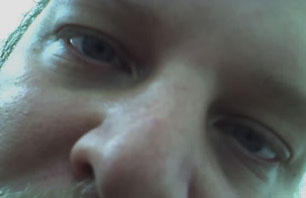 The World Bank came up with a great social model that really describes the world, and why some countries are wealthy, and some countries are poor: The concept of "intangible wealth" and the role it plays in economic abundance.
The World Bank came up with a great social model that really describes the world, and why some countries are wealthy, and some countries are poor: The concept of "intangible wealth" and the role it plays in economic abundance.It's a very simple concept really: The things that contribute most to a country's success are the things least able to be measured by numbers (although the World Bank does apply dollar values to these things in their model). While hydroelectric plants, oil reserves, arable land, and the old "plants, property, and equipment" are assets that an economy is founded on, the World Bank has determined that anywhere from 60% to 80% of a country's wealth is intangible: Stability of government and equal application of the law, the level of education of the population, et cetera.
Once one takes into account all of the world's natural resources and produced capital, 80% of the wealth of rich countries and 60% of the wealth of poor countries is of this intangible type. The bottom line: "Rich countries are largely rich because of the skills of their populations and the quality of the institutions supporting economic activity."Anyway, it's a great breakthrough in how to measure the wealth of the world we live in, and how to quantify the positive aspects that national stability and social order has on the macroeconomic... and even microeconomic... functioning of a country. A quick little article, well worth a read.
What the World Bank economists have brilliantly done is quantify the intangible value of education and social institutions. According to their regression analyses, for example, the rule of law explains 57 percent of countries' intangible capital. Education accounts for 36 percent.
Overall, the average per capita wealth in the rich Organization for Economic Cooperation Development (OECD) countries is $440,000, consisting of $10,000 in natural capital, $76,000 in produced capital, and a whopping $354,000 in intangible capital. (Switzerland has the highest per capita wealth, at $648,000. The U.S. is fourth at $513,000.)
By comparison, the World Bank study finds that total wealth for the low income countries averages $7,216 per person. That consists of $2,075 in natural capital, $1,150 in produced capital and $3,991 in intangible capital. The countries with the lowest per capita wealth are Ethiopia ($1,965), Nigeria ($2,748), and Burundi ($2,859).
In fact, some countries are so badly run, that they actually have negative intangible capital. Through rampant corruption and failing school systems, Nigeria and the Democratic Republic of the Congo are destroying their intangible capital and ensuring that their people will be poorer in the future.




No comments:
Post a Comment